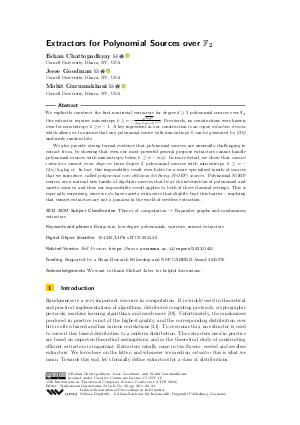LIPIcs.ITCS.2024.28.pdf
- Filesize: 0.87 MB
- 24 pages

 Creative Commons Attribution 4.0 International license
Creative Commons Attribution 4.0 International license












Feedback for Dagstuhl Publishing